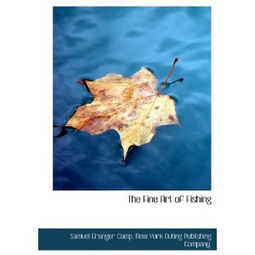Content:
Introduction: Lobster ponds, with their serene waters and bountiful marine life, offer anglers a unique and thrilling fishing experience. However, catching fish in a lobster pond can be quite different from traditional freshwater or saltwater fishing. In this article, we will delve into the art of fishing in lobster ponds, providing you with essential techniques and tips to help you master this unique fishing environment.
Understanding Lobster Ponds: Before diving into the fishing techniques, it's crucial to understand the characteristics of lobster ponds. These ponds are often shallow, with a mix of saltwater and freshwater, which can significantly impact the types of fish you'll encounter. Common species in lobster ponds include striped bass, flounder, bluefish, and various species of perch and herring.
Choosing the Right Equipment: Selecting the appropriate fishing gear is vital for success in lobster ponds. Here are some essential items to consider:
a. Rod and Reel: Opt for a medium-action rod and reel combination, as it provides the flexibility needed for both light and heavy fishing. A spinning reel is a popular choice due to its ease of use and versatility.
b. Line: Use a monofilament line with a breaking strength of 6 to 12 pounds, depending on the size of the fish you're targeting. Fluorocarbon line is recommended for its invisibility in the water, reducing the chances of spooking fish.
c. Lures and Bait: In lobster ponds, artificial lures can be highly effective. Soft plastics, spinnerbaits, and jigs are great choices. For natural bait, live minnows, pieces of squid, or clam strips can attract fish.
Locating the Fish: Identifying the best spots in the pond is key to successful fishing. Here are some tips for locating fish in lobster ponds:
a. Look for Structure: Lobster ponds often have natural or artificial structures like rocks, logs, or docks that fish use as cover. Target these areas with your lures or baits.
b. Observe the Surface: Look for surface activity such as splashes or boils, which indicate the presence of fish.
c. Timing: Fish are more active during dawn and dusk, so these are the best times to fish. However, in lobster ponds, fish can be caught throughout the day, so be prepared to fish at different times.
Presenting Your Bait or Lure: Once you've located potential fish-holding areas, it's time to present your bait or lure effectively. Here are some techniques to consider:
a. Cast and Retrieve: Cast your lure or bait out and retrieve it in a steady, consistent manner. This mimics the natural movement of prey and can trigger strikes.
b. Jerk and Pause: Add short, sharp twitches to your retrieve to simulate struggling prey. After each twitch, pause for a few seconds to allow the fish to investigate.
c. Slow Roll: If the water is calm, a slow, rolling retrieve can be effective. This allows the lure to gently drift past fish without causing too much commotion.
Setting the Hook: When a fish takes your bait or lure, it's important to set the hook quickly and efficiently. Here's how to do it:
a. Feel the Bump: When you feel a slight bump or pull on your line, it's likely a fish has taken the bait. React immediately.

b. Set the Hook: If you're using a spinning reel, simply turn the handle to set the hook. With a baitcasting reel, reel in quickly and then set the hook by jerking the rod tip upward.
Landing the Fish: Once you've hooked a fish, it's time to land it. Here are some tips for a successful catch:
a. Keep a Firm Grip: Maintain a firm grip on the rod while reeling in, but avoid applying too much pressure, as this can cause the fish to break off.
b. Guide the Fish: If the fish turns away from you, gently guide it back towards the boat or shore. Avoid unnecessary tangles in the line.
c. Be Patient: Some fish may put up a fight, so be patient and allow the fish to tire before attempting to land it.
Conclusion: Fishing in lobster ponds can be a rewarding and enjoyable experience. By understanding the unique characteristics of these ponds, choosing the right equipment, and mastering the techniques discussed in this article, you'll be well on your way to becoming a proficient angler in this unique fishing environment. Happy fishing!












